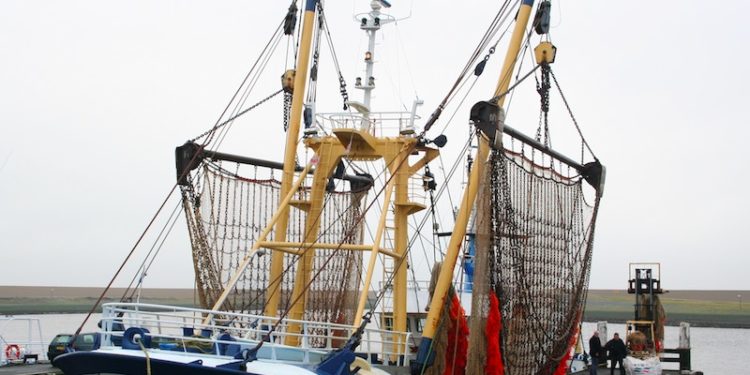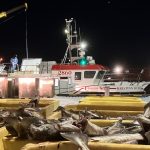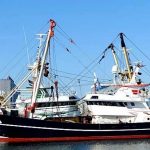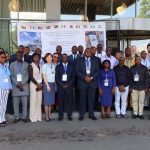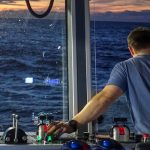During a meeting in Brussels yesterday of the North Sea Advisory Council (NSAC) it became clear that aspects of the Brexit negotiations are still unclear. According to Dutch fishermen’s association VisNed, with more than a hundred shared stocks in the North sea and western waters, agreements need to be made on management of TACs, access to the waters and to the market.
The second stage of Brexit negotiations have begun and are expected to last through to October, and the possibility of a transition period is being discussed that could run to the end of 2021.
‘It is clear to the EU that fishing also needs to be part of the transition period,’ said VisNed’s spokesman. ‘The problem is that the UK does not in any way provide clarity on its position, apparently due to internal divisions about the right approach and starting positions. This makes it difficult to negotiate and even harder to make agreements about the period that lies ahead.’
According to VisNed, Europe is looking to maintain a status quo for the transition period, while new agreements must be made on management after the separation. The EU’s preferred position is to continue agreements on the MSY approach, as well as on discards and other issues.
‘To this purpose, a consultation structure plus decision-making processes must be put in place with the UK, but the question is whether this can still be done in the Scheveningen group or whether something else has to be set up,’ VisNed said.
‘The same applies to the position of the North Sea Advisory Council. The UK organisations and NGOs remain full members until the end of March 2019 and agreements have to be made for the subsequent period. After all, despite Brexit, we are closely tied to each other on the North Sea – and that is not meant as something negative. But it is important that the UK comes up with a position statement in the short term. According to the UK representatives on the NSAC, they also do not know what the British government will be doing.’
‘Fortunately, both the English and the Scottish representatives have argued that we can not work without co-operating in the interest of fishermen and the good management of fish stocks and waters.’
At the NASC meeting it was agreed that a small working group is to be established which will as soon as more information is available from the UK will start to formulate advice on stakeholder consultation on the post-Brexit prospects, both for the transition period and subsequently

